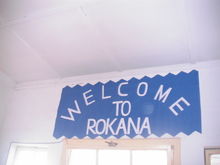User:Gonzalo/web 2.0 group2
100 laptop initiative (IICD) IN ZAMBIA
Introduction
History's records are filled with the sour taste like feeling of well meant, but in the end failing, attempts to put the advances of computer technology, by means of providing computers, in the hands of those crying for them be they youths, teachers, the disadvantaged or those unable to afford the equipment.
History's records are filled with the sour taste like feeling of well meant, but in the end failing, attempts to put the advances of computer technology, by means of providing computers, in the hands of those crying for them be they youths, teachers, the disadvantaged or those unable to afford the equipment.
History's records are filled with the sour taste like feeling of well meant, but in the end failing, attempts to put the advances of computer technology, by means of providing computers, in the hands of those crying for them be they youths, teachers, the disadvantaged or those unable to afford the equipment.
- History's records are filled with the sour taste like feeling of well meant, but in the end failing, attempts to put the advances of computer technology, by means of providing computers, in the hands of those crying for them be they youths, teachers, the disadvantaged or those unable to afford the equipment.
BACKGROUND
- Some initiatives in Zambia, like CAMARA, COMPUTER FOR ZAMBIAN SCHOOLS (CFZS), have had considerable measure of success while others, that better be left unamed, focused their efforts on groups or areas that were bound to fail even before implementation. Okay, perhaps it's a bit hyperbolic to compare those initiatives to decomposing bodies, but there's no denying they haven't exactly flooded the world with low-cost PCs the way they were envisioned. So, here comes the Raspberry Pi, another effort with lofty goals, both in terms of purpose and price. Of course, the approach is different here -- more barebones, with a healthy dose of inspiration from Arduino and the DIY movement. The question is, what has it learned from those that have come before it? And, most importantly, where does the Raspberry Pi go right and where does it go wrong? To find out, keep reading after the break.
Stakeholders
People involved are
- Teachers
- Students
- Primary
- Secondary
- Tertiary
- Public servants
- Teachers
- Students
- Primary
- Secondary
- Tertiary
- Public servants
